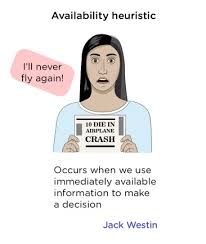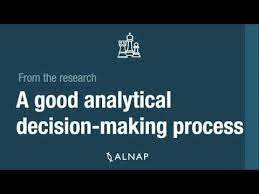Understanding Decision Making: A Comprehensive Definition
Decision making is an integral part of our daily lives. From the simplest choices we make, such as what to have for breakfast, to the more complex decisions that shape our careers and relationships, the process of decision making plays a crucial role in determining our path forward.
So, what exactly is decision making? In its essence, decision making refers to the cognitive process of selecting a course of action or choosing from available alternatives. It involves analyzing information, weighing options, and ultimately arriving at a conclusion.
Decision making can be influenced by various factors, including personal values, emotions, past experiences, and external circumstances. It is a multifaceted process that requires critical thinking skills and the ability to evaluate potential outcomes and consequences.
There are different approaches and models of decision making that individuals employ based on their unique circumstances. Some common decision-making models include:
- Rational Decision Making: This model suggests that individuals make decisions by carefully considering all available information and evaluating the potential risks and benefits before arriving at a logical choice.
- Intuitive Decision Making: In contrast to rational decision making, intuitive decision making relies on gut feelings and instinctive responses. It involves relying on past experiences and pattern recognition to arrive at quick decisions.
- Bounded Rationality: This model acknowledges that individuals often face limitations in terms of time, resources, and information when making decisions. As a result, they tend to settle for satisfactory choices rather than seeking the optimal solution.
- Group Decision Making: In certain scenarios, decisions are made collectively by a group of individuals. This approach allows for diverse perspectives and input from multiple stakeholders before reaching a consensus.
The decision-making process typically consists of several stages:
- Identifying the problem or the need for a decision.
- Gathering relevant information and data to better understand the situation.
- Generating a range of possible alternatives or options.
- Evaluating and analyzing each alternative based on predetermined criteria.
- Selecting the most suitable option based on the evaluation.
- Implementing the chosen decision.
- Assessing and reflecting on the outcomes of the decision to learn from it.
It is important to note that decision making is not always a straightforward process. Uncertainty, conflicting information, and external pressures can complicate decision making, making it more challenging. However, improving decision-making skills through practice, reflection, and seeking advice can lead to better outcomes.
At FreeLifeDecisions.info, we are committed to providing you with valuable insights and resources to enhance your decision-making abilities. Whether you are facing personal dilemmas or professional choices, our aim is to equip you with the knowledge and tools necessary for effective decision making. Remember, every decision you make has the potential to shape your life’s trajectory, so choose wisely!
Clarifying Decision-Making: Definitions, Principles, and Types – A Guide to Understanding the Process of Making Choices
- What is the best definition of decision?
- What is decision-making explain with an example?
- What is the simple definition of decision-maker?
- What is the definition and principles of decision-making?
- What are the 5 elements of decision-making?
- What are the 3 types of decision-making?
- What is the definition of decision-making?
- What do you mean by decision-making?
What is the best definition of decision?
The best definition of a decision can be described as a deliberate and conscious choice made after considering various options or alternatives. It involves analyzing information, evaluating potential outcomes, and selecting the course of action that aligns with one’s goals, values, and priorities. A decision is not merely a random selection but rather a thoughtful process that requires critical thinking and weighing the pros and cons before arriving at a conclusion. Ultimately, a decision represents the commitment to take a specific path forward based on careful consideration and judgment.
What is decision-making explain with an example?
Decision-making is the process of selecting a course of action or choosing from available alternatives. To better understand this concept, let’s consider an example. Imagine you are planning a vacation and need to decide between two destinations: a tropical beach or a bustling city. To make your decision, you gather information about each option, such as the weather, activities available, and costs. You then evaluate the pros and cons of each destination based on your preferences and priorities. After careful consideration, you choose the tropical beach because you value relaxation and nature. This example demonstrates how decision-making involves analyzing information, weighing options, and ultimately making a choice that aligns with your goals and values.
What is the simple definition of decision-maker?
The simple definition of a decision-maker is an individual or entity responsible for making choices or decisions. A decision-maker is someone who analyzes information, considers various options, and ultimately selects a course of action based on their judgment and evaluation. Whether it’s an individual making personal choices or a leader making decisions on behalf of an organization, the decision-maker plays a crucial role in determining the outcome and direction of a situation.
What is the definition and principles of decision-making?
The definition of decision making refers to the cognitive process of selecting a course of action or choosing from available alternatives. It involves analyzing information, weighing options, and ultimately arriving at a conclusion. The principles of decision making revolve around considering relevant factors, evaluating potential outcomes, and making choices based on rationality, intuition, or a combination of both. The principles also emphasize the importance of gathering reliable information, considering the long-term consequences, being aware of personal biases, and involving stakeholders when necessary. Effective decision making requires critical thinking skills, clarity of goals, and the ability to adapt to changing circumstances. By understanding the definition and principles of decision making, individuals can enhance their ability to make informed choices that align with their values and objectives.
What are the 5 elements of decision-making?
When it comes to decision making, there are five key elements that play a significant role in the process. These elements help individuals navigate through choices and make informed decisions. The first element is identifying the problem or need for a decision, which sets the foundation for the decision-making process. The second element involves gathering relevant information and data to gain a comprehensive understanding of the situation. The third element is generating a range of possible alternatives or options to consider. The fourth element entails evaluating and analyzing each alternative based on predetermined criteria to determine their feasibility and potential outcomes. Lastly, the fifth element involves selecting the most suitable option based on the evaluation and implementing the chosen decision. By considering these five elements, individuals can approach decision making with a structured and systematic approach, leading to more effective and successful outcomes.
What are the 3 types of decision-making?
When it comes to decision making, there are generally three types of approaches that individuals employ. The first is rational decision making, which involves carefully analyzing information, weighing options, and considering the potential risks and benefits before arriving at a logical choice. The second is intuitive decision making, which relies on gut feelings and instinctive responses based on past experiences and pattern recognition. Lastly, bounded rationality acknowledges the limitations individuals face in terms of time, resources, and information, leading them to settle for satisfactory choices rather than seeking the optimal solution. These three types of decision-making approaches offer different perspectives and strategies for navigating choices in various situations.
What is the definition of decision-making?
The definition of decision-making refers to the cognitive process of selecting a course of action or choosing from available alternatives. It involves analyzing information, weighing options, and ultimately arriving at a conclusion. Decision-making can be influenced by various factors such as personal values, emotions, past experiences, and external circumstances. It is a complex process that requires critical thinking skills and the ability to evaluate potential outcomes and consequences. Understanding the definition of decision-making is crucial as it plays a fundamental role in shaping our lives and determining the paths we take.
What do you mean by decision-making?
Decision-making refers to the cognitive process of selecting a course of action or choosing from available alternatives. It involves carefully analyzing information, weighing options, and considering potential outcomes and consequences before arriving at a conclusion. Decision-making is an essential skill that we use in various aspects of our lives, from everyday choices to significant life-changing decisions. It encompasses both logical reasoning and intuitive judgment, taking into account personal values, emotions, past experiences, and external factors. By understanding the concept of decision-making, we can actively improve our ability to make well-informed choices that align with our goals and values.




